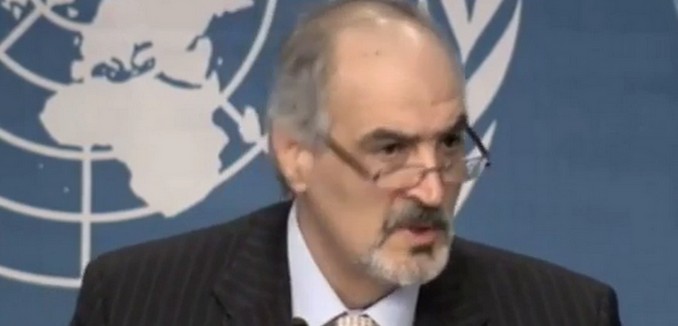Geneva II peace talks continue between the Bashar al-Assad regime, which has made Assad’s continued rule a red line, and opposition elements, who have all but conditioned the talks’ success on his removal. There are also global powers involved who are to greater and lesser extents aligned with one of the factions, or in many cases a subset of one of the factions, and U.S. support for relatively moderate rebel groups has at least once been used as a pretext by Damascus for suspending talks.
The talks had opened with a number of unproductive exchanges. As of yesterday, the situation had not advanced much:
Speaking at a press conference at the end of “a long day,” the usually optimistic Brahimi lamented that “to be blunt, I do not expect that we will achieve anything substantive.”… Brahimi acknowledged that while “we realize every day that the two parties seem to be willing to stay on and to talk, but the gap between them is quite large.”
Talks have been marred by a steady stream of news documenting regime atrocities. Largely indiscriminate shelling – including with so-called barrel bombs packed with shrapnel – had already brought the country to the brink of a “humanitarian catastrophe.”
The Wall Street Journal reported that food and medicine are being used as weapons by both sides – though “mostly the Syrian government,” which “aimed to starve opposition fighters and their sympathizers into submission.” The allegations come amid a literal famine that has broken out in some rebel-controlled areas. The Syrian government has refused to allow humanitarian aid to reach civilians, including and most recently to the city of Homs, where a convoy with filled with World Food Program provisions is being held up. The State Department explicitly called out the Assad regime for the tactic:
“The only reason this assistance has not been delivered is that the regime has refused to let the convoy through,” said State Department spokesman Edgar Vasquez, rejecting government claims that rebel snipers and armed groups were preventing entry. “The regime’s actions speak volumes to how little they value the lives of innocent civilians.”
Meanwhile CNN recently broke a story documenting evidence of widespread systematic torture, with a photographer who had worked for the Assad regime ostensibly smuggling out thousands of images of emaciated and tortured corpses. At least one expert who spoke to the outlet suggested that the evidence raised the possibility that Damascus had committed crimes against humanity.
Spillover violence into Turkey led Ankara during the course of talks to close its borders with Syria.
[Photo: mikenagoya / YouTube ]




